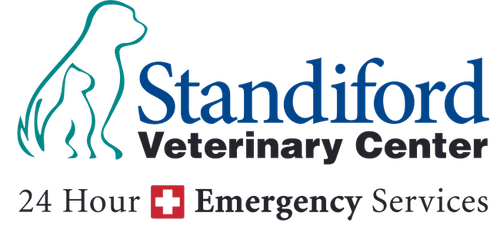What is Laparoscopic-Assisted Gastropexy?
Gastropexy is a surgical procedure that prevents the stomach from flipping or twisting, effectively reducing or eliminating the risk of the life-threatening condition known as Gastric Dilatation and Volvulus (GDV). During a gastropexy surgery, the stomach is safely and securely anchored to the abdominal cavity. Laparoscopic-Assisted Gastropexy is a minimally invasive surgery that uses specific techniques and instruments to decrease the risk (or recurrence) of GDV to less than 1%.
What are some of the causes of Gastric Dilatation and Volvulus (GDV)?
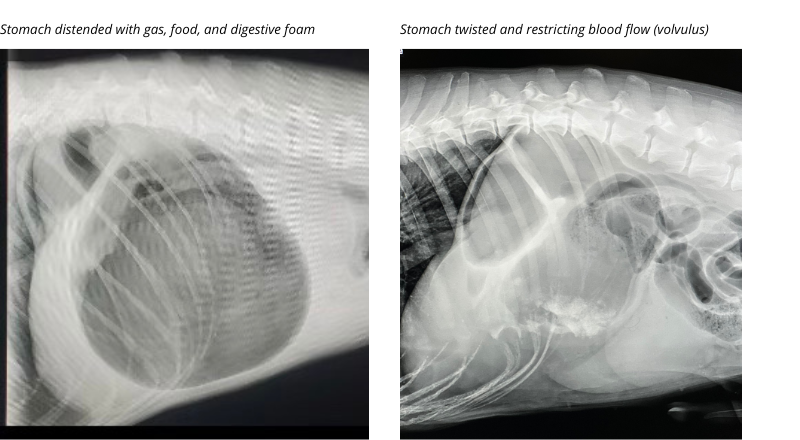 GDV often occurs after ingesting a large meal. The accumulation of gas, food, and foam result in distention (expansion) of the stomach. In some instances, the enlarged fluid-filled stomach will flip or twist on itself. The building gas continues to expand the stomach, which if not released will cause immense pain, increased heart rate, and decreased blood flow to the surrounding tissues. Without emergency intervention, all dogs will sadly succumb to shock and organ failure. Even with advanced and prompt surgical intervention, nearly half of dogs with GDV will die due to complications.
GDV often occurs after ingesting a large meal. The accumulation of gas, food, and foam result in distention (expansion) of the stomach. In some instances, the enlarged fluid-filled stomach will flip or twist on itself. The building gas continues to expand the stomach, which if not released will cause immense pain, increased heart rate, and decreased blood flow to the surrounding tissues. Without emergency intervention, all dogs will sadly succumb to shock and organ failure. Even with advanced and prompt surgical intervention, nearly half of dogs with GDV will die due to complications.
Are certain dog breeds more at-risk for developing GDV?
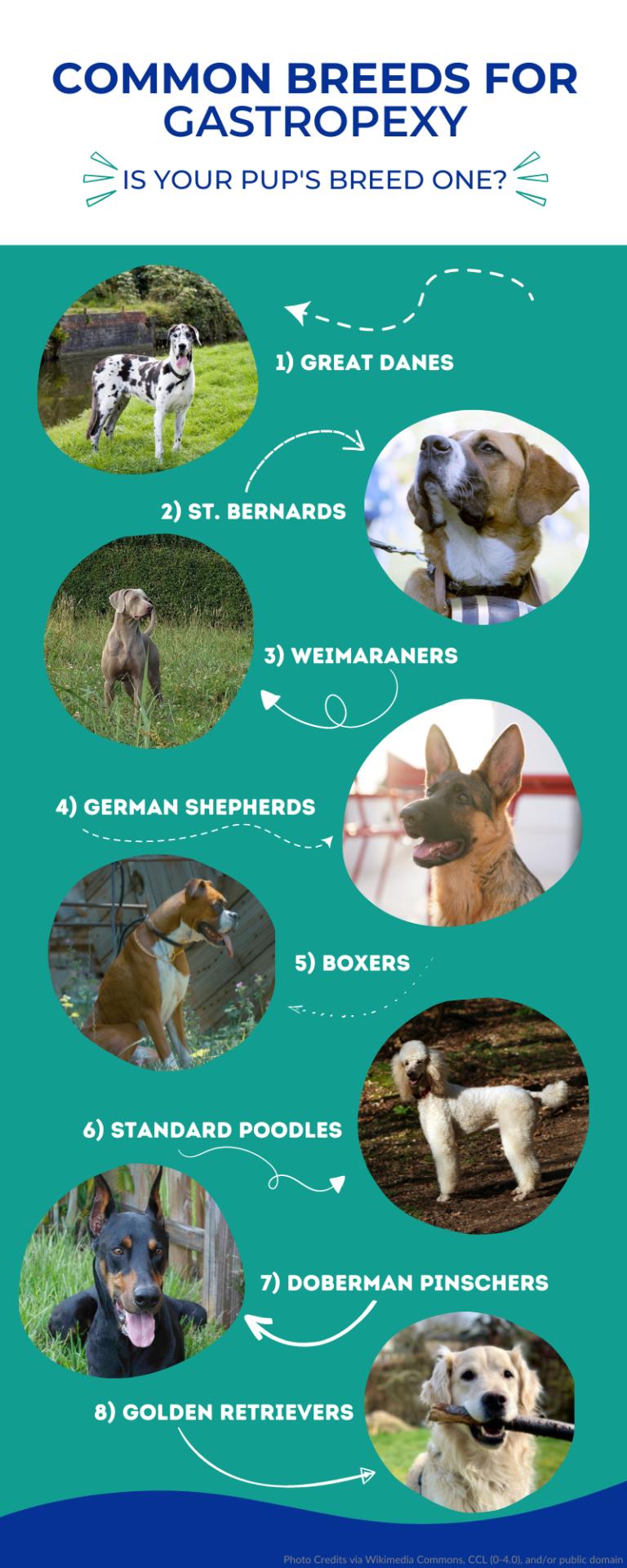 Large or deep-chested breeds such as the German Shepherd, Golden Retriever, and Great Dane are most prone to GDV.
Large or deep-chested breeds such as the German Shepherd, Golden Retriever, and Great Dane are most prone to GDV.
How is Laparoscopic-Assisted Gastropexy performed?
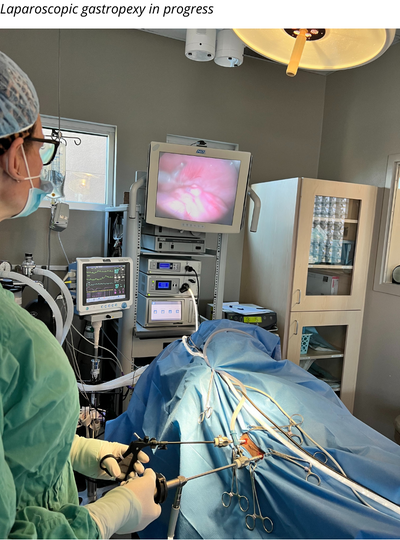 The procedure is performed on an outpatient basis. First, a small (1 cm) incision is made over the abdomen near the umbilicus. Then, a very small camera is inserted into the incision to visualize the structures of the abdomen, primarily the stomach. A second small incision is made over the region of the stomach. Laparoscopic Babcocks (surgical instruments) are used to safely and securely grasp the stomach and move it into a position where it can be permanently secured to the abdominal wall ensuring it will no longer flip or twist.
The procedure is performed on an outpatient basis. First, a small (1 cm) incision is made over the abdomen near the umbilicus. Then, a very small camera is inserted into the incision to visualize the structures of the abdomen, primarily the stomach. A second small incision is made over the region of the stomach. Laparoscopic Babcocks (surgical instruments) are used to safely and securely grasp the stomach and move it into a position where it can be permanently secured to the abdominal wall ensuring it will no longer flip or twist.
Does Laparoscopic-Assisted Gastropexy have benefits that regular gastropexy does not?
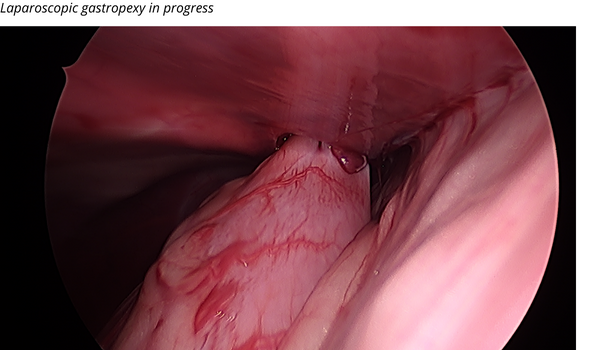 Yes. Laparoscopic procedures offer the benefits of decreased anesthetic time, decreased surgery time, improved surgical technique, decreased pain, and decreased recovery time. Laparoscopic-Assisted Gastropexy can also be performed at the same time as other laparoscopic procedures, such as Laparoscopic Ovariectomy or Castration.
Yes. Laparoscopic procedures offer the benefits of decreased anesthetic time, decreased surgery time, improved surgical technique, decreased pain, and decreased recovery time. Laparoscopic-Assisted Gastropexy can also be performed at the same time as other laparoscopic procedures, such as Laparoscopic Ovariectomy or Castration.
In addition to a full-service general and specialty veterinary clinic, Standiford Veterinary Center offers emergency services 24 hours a day, 7 days a week, 365 days a year. If you would like to consider the option of Laparoscopic-Assisted Gastropexy, please have your veterinarian contact us or call Standiford Veterinary Hospital at (209) 577-3481.
